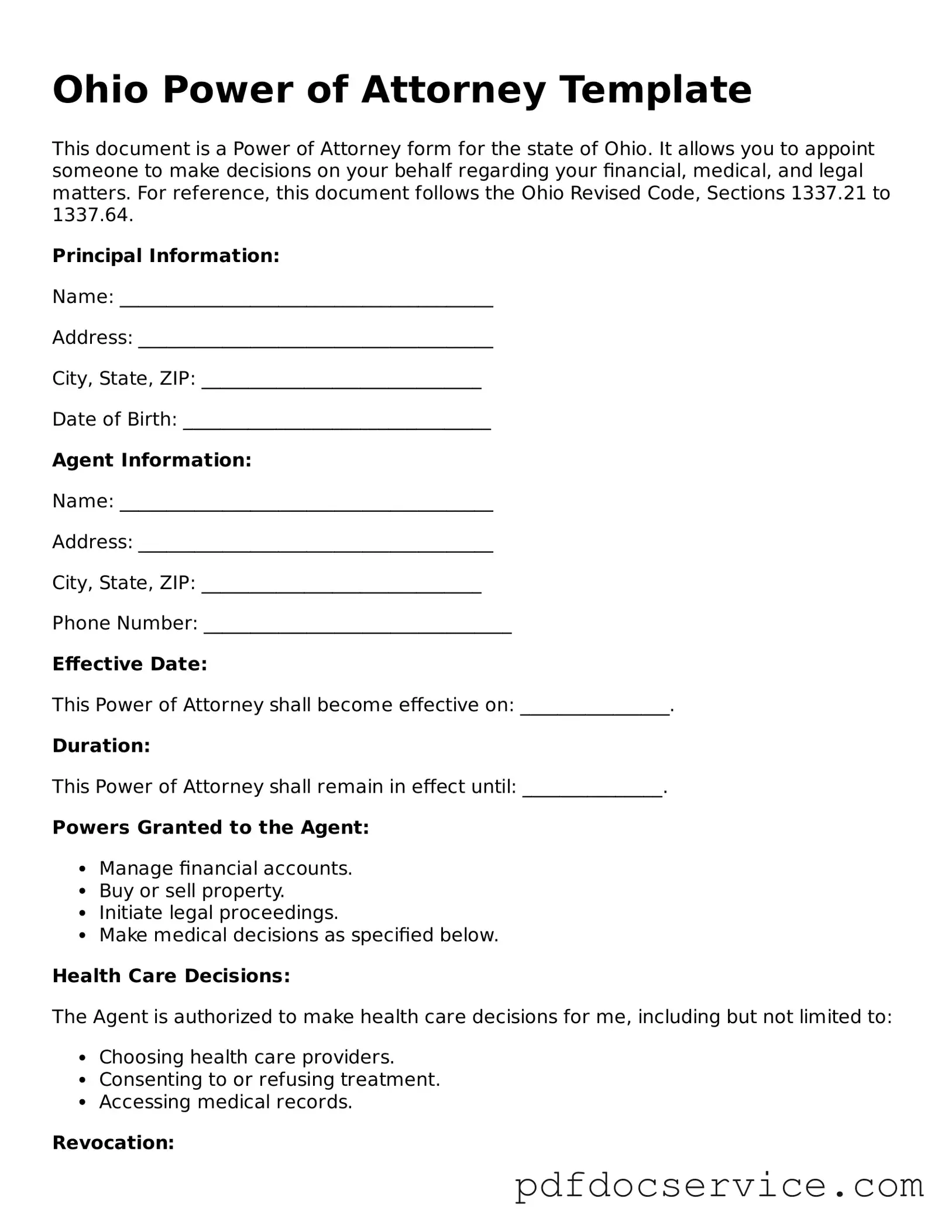What is a Power of Attorney in Ohio?
A Power of Attorney (POA) in Ohio is a legal document that allows one person (the principal) to give another person (the agent or attorney-in-fact) the authority to make decisions on their behalf. This can include financial matters, healthcare decisions, or other specific tasks. The principal can define the scope of the agent's authority, which can be broad or limited, depending on their needs.
What types of Power of Attorney are available in Ohio?
Ohio recognizes several types of Power of Attorney, including:
-
General Power of Attorney:
Grants broad powers to the agent to handle various matters.
-
Limited Power of Attorney:
Restricts the agent's authority to specific tasks or situations.
-
Durable Power of Attorney:
Remains effective even if the principal becomes incapacitated.
-
Healthcare Power of Attorney:
Specifically allows the agent to make medical decisions for the principal if they are unable to do so.
How do I create a Power of Attorney in Ohio?
To create a Power of Attorney in Ohio, follow these steps:
-
Choose your agent carefully. This should be someone you trust to act in your best interest.
-
Decide on the type of Power of Attorney you need based on your circumstances.
-
Obtain the appropriate form. You can find templates online or consult with an attorney for assistance.
-
Complete the form, clearly outlining the powers you wish to grant.
-
Sign the document in the presence of a notary public. This step is crucial for the document to be legally binding.
Can I revoke a Power of Attorney in Ohio?
Yes, you can revoke a Power of Attorney at any time as long as you are mentally competent. To do this, you should create a written revocation document and notify your agent and any institutions or individuals who were relying on the original Power of Attorney. It’s a good practice to also return the original document to ensure it is no longer used.
What happens if I become incapacitated and have a Power of Attorney?
If you become incapacitated and have a Durable Power of Attorney in place, your designated agent can step in and make decisions on your behalf. This can include managing your finances, paying bills, or making healthcare decisions. If you do not have a Durable Power of Attorney, your family may need to go through a court process to appoint a guardian to make decisions for you.
Is a Power of Attorney valid in other states?
A Power of Attorney created in Ohio is generally valid in other states, but the laws can vary. It’s advisable to check the specific requirements of the state where the Power of Attorney will be used. Some states may have their own forms or additional requirements, so consulting with a local attorney is a good idea if you plan to use your Ohio Power of Attorney elsewhere.

